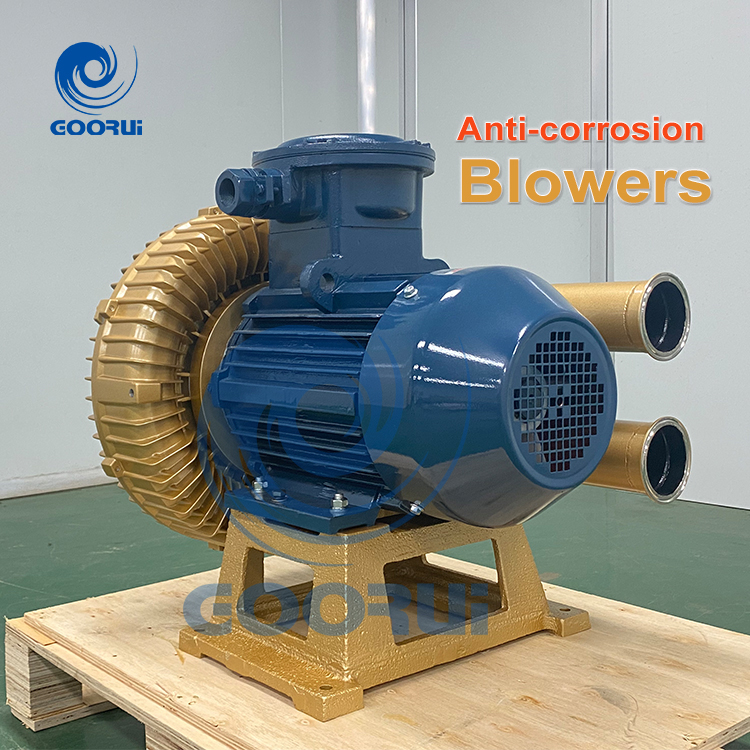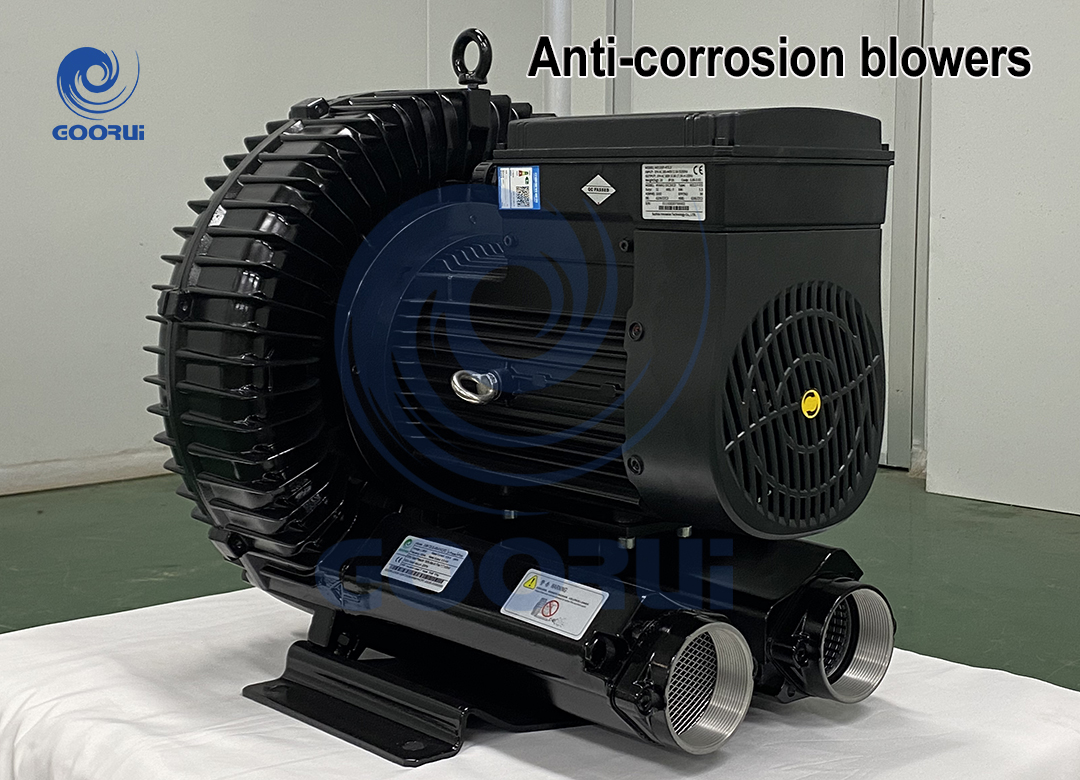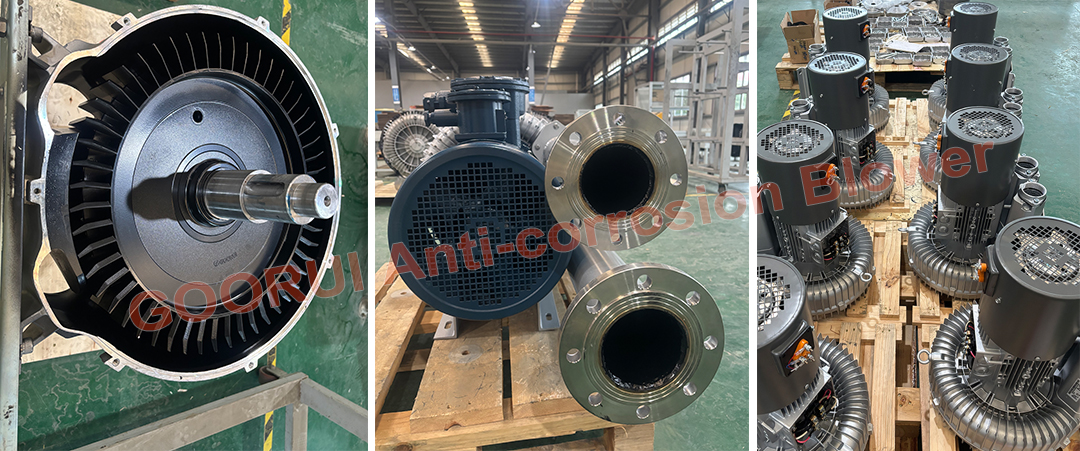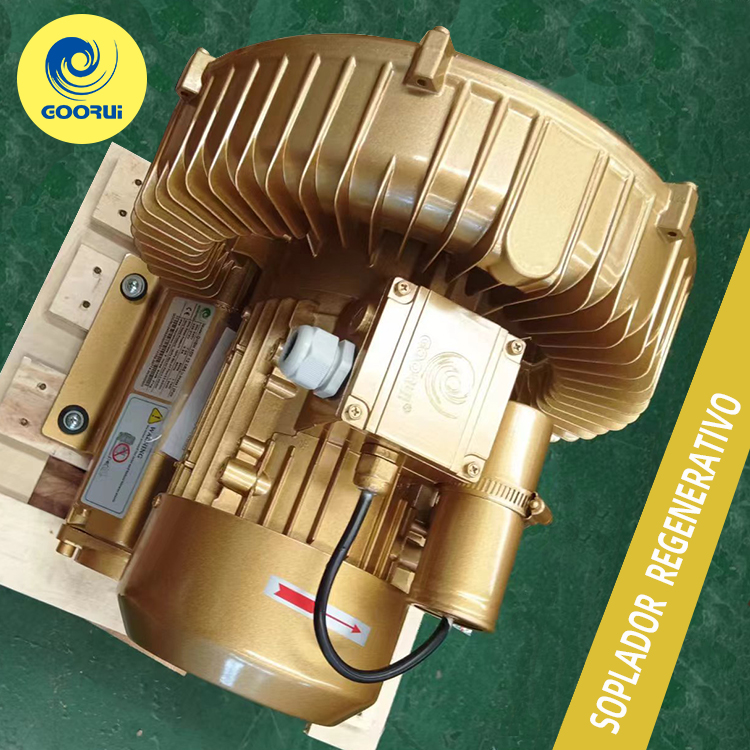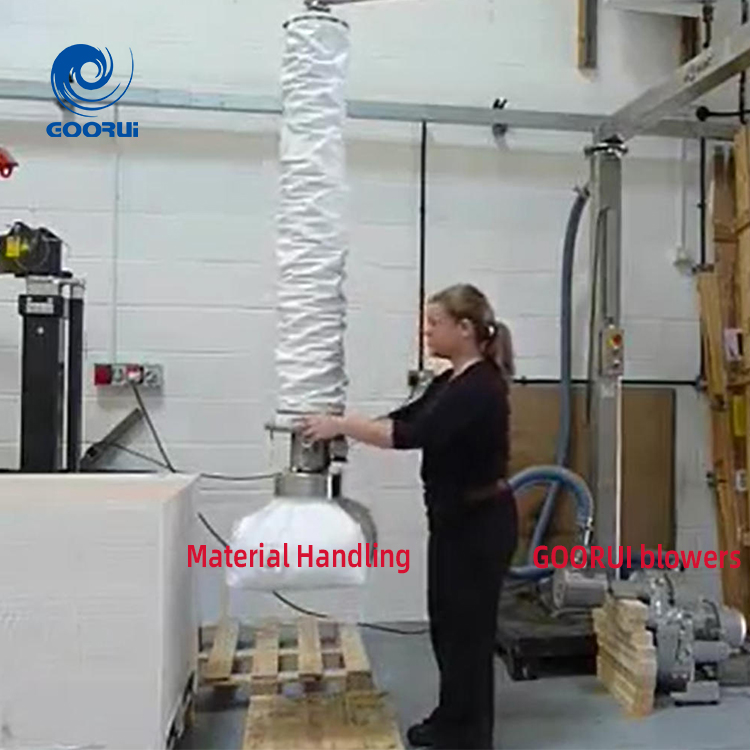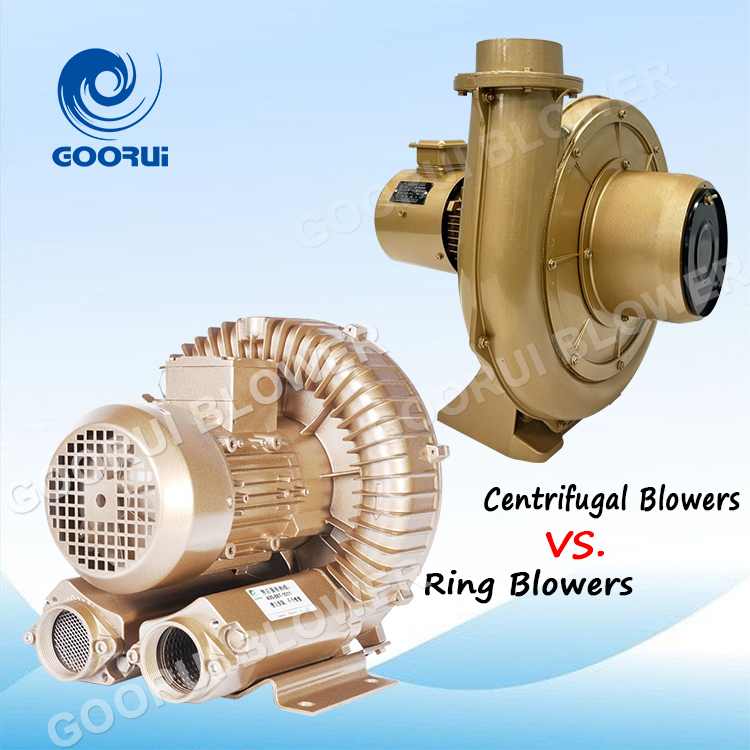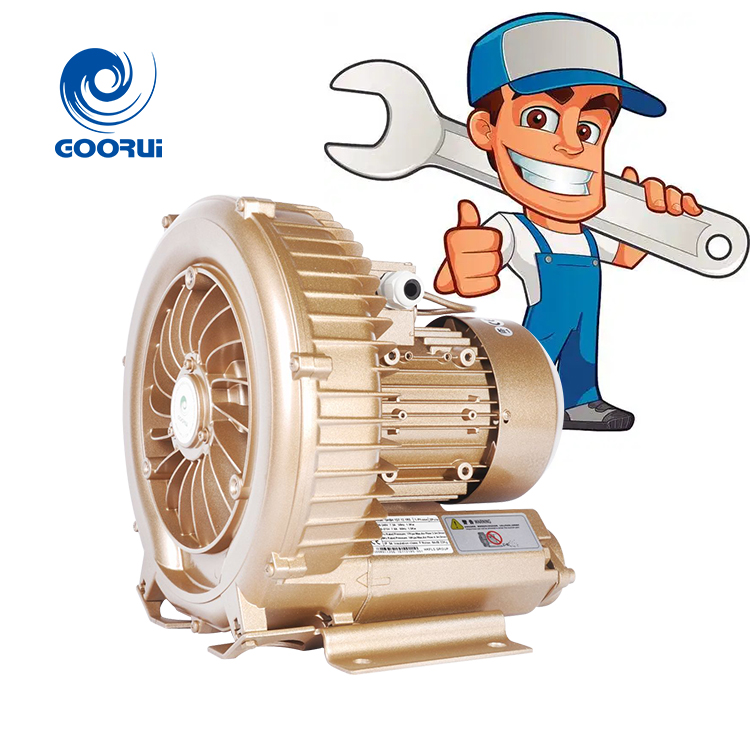GOORUI anti-corrosion blowers are mainly used in environments with corrosive gases or high humidity. Their anti-corrosion treatment is intended to extend the life of the equipment and ensure safe operation. The following is an analysis of specific application scenarios and the necessity of anti-corrosion:
· The main application environment of anti-corrosion blowers
Chemical industry
Scenario: fertilizer plants, pesticide plants, petrochemical enterprises, etc.
Corrosion sources: contact with acidic gases (such as SO₂, HCl), alkaline steam (such as ammonia) or organic solvent volatiles.
Function of blowers: exhaust gas emission, process ventilation.
Electroplating/metallurgical industry
Scenario: electroplating workshop, metal smelting plant.
Corrosion sources: electroplating liquid acid mist (chromic acid, cyanide), high-temperature metal dust.
Function of blowers: remove harmful gases and reduce workshop concentrations.
Sewage treatment/environmental protection field
Scenario: sewage treatment plant, garbage incineration station.
Corrosion sources: hydrogen sulfide (H₂S), methane, humid chlorine environment.
Function: aeration oxygen supply or waste gas treatment.
Marine/coastal environment
Scenario: ship cabins, offshore platforms, coastal factories.
Corrosion sources: high-salinity air, humid sea fog.
Function of blowers: ventilation, moisture-proof, explosion-proof.
Food/pharmaceutical industry
Scenario: fermentation workshop, drug production room.
Corrosion sources: high temperature and high humidity environment, organic acids (such as lactic acid, acetic acid).
Function of blowers: keep clean air circulating.
Other special environments
Laboratory ventilation (contact with corrosive reagents), battery production (lead-acid steam), etc.
· Necessity of anti-corrosion treatment
Resist chemical corrosion
Ordinary metals (such as carbon steel) will rust quickly in acidic/alkaline environments, causing blade perforation and shell damage. Anti-corrosion coatings (such as PP, PVDF) or materials (such as fiberglass, stainless steel 316L) can block contact with corrosive media.
Prevent electrochemical corrosion
Salt spray in the marine environment forms a primary battery reaction with metals, accelerating corrosion. Anti-corrosion treatment avoids electrochemical reactions by passivating the surface or using non-metallic composite materials (such as FRP).
Extend equipment life
Uncorrosion-resistant blowers may fail in 1-2 years in a corrosive environment, while corrosion-resistant fans can last 5-10 years, reducing replacement frequency and cost.
Ensure safe operation
Corrosion may cause impeller breakage and casing leakage, leading to gas leakage or mechanical failure. Anti-corrosion treatment maintains structural integrity and avoids safety accidents.
Maintain efficiency stability
The accumulation of corrosion products will change the aerodynamic performance of the impeller and reduce air volume efficiency. Anti-corrosion treatment ensures long-term stable operating parameters.
Summary
Corrosion-resistant blowers are key equipment in corrosive environments, and their treatment process is directly related to cost, safety and efficiency. When selecting, it is necessary to match the material and protection level according to the specific corrosive medium (concentration, temperature, humidity), and customize solutions when necessary.
If your business depends on quality performance from air technology equipment, then come and talk to GOORUI to find out more about our air technology services and solutions. GET A FREE QUOTE


